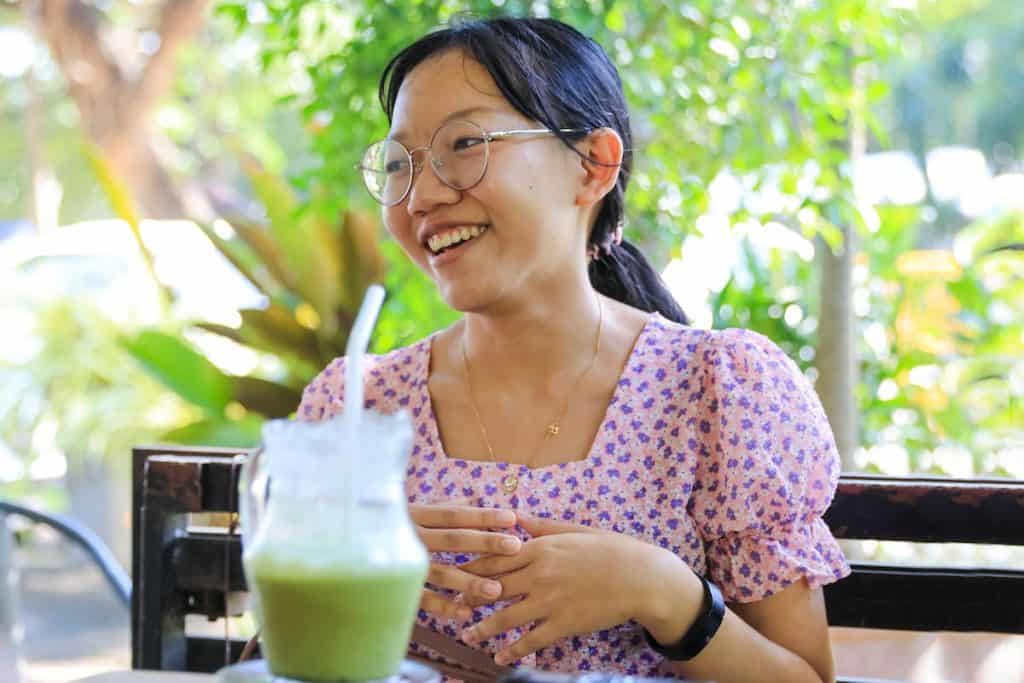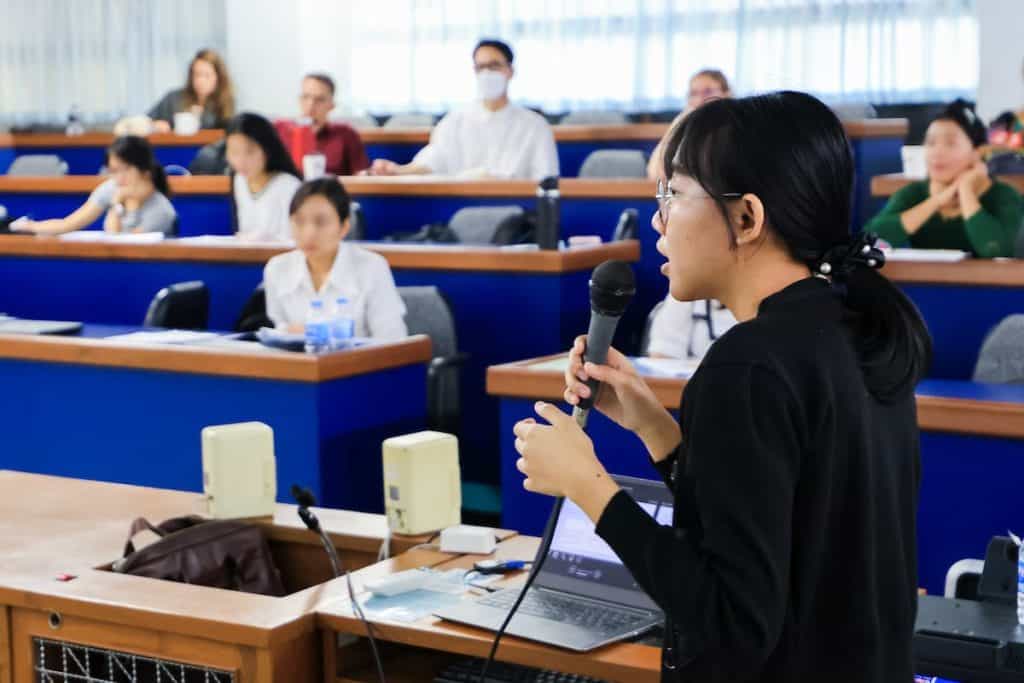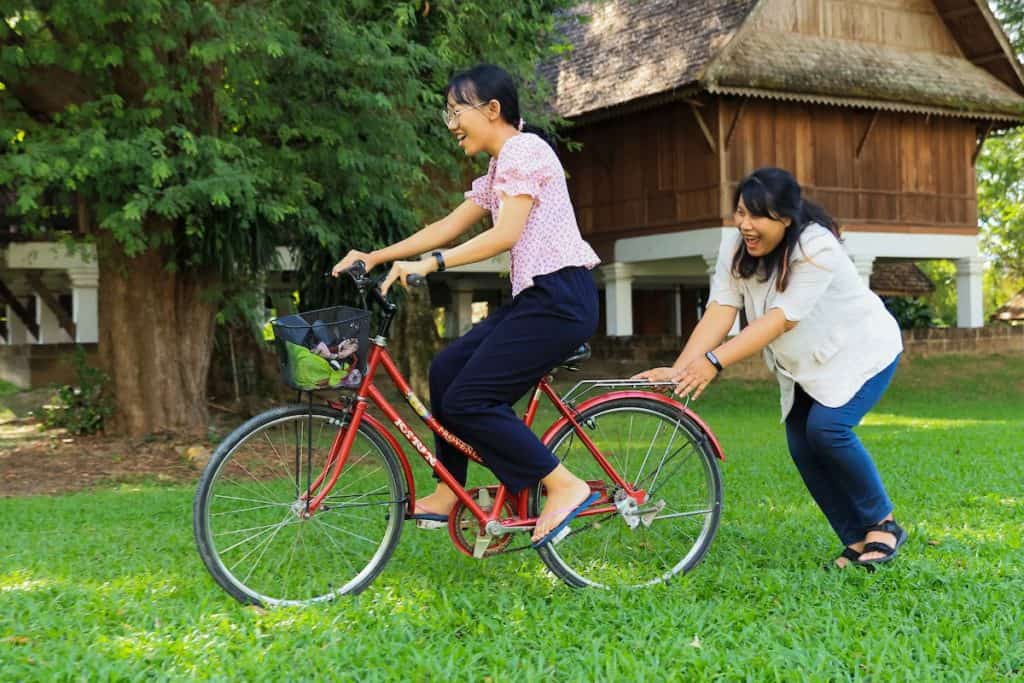A young woman trades her dream of “a simple life” to prepare for Bible translation work in Southeast Asia
Missionary life can be an amazing adventure of faith. It can also be incredibly difficult. For missionary kids trying to choose a path for their adult lives, memories of hardship sometimes overshadow the adventure.
Karis* is one of more than a dozen Southeast Asian scholarship students in Payap University’s linguistics MA program in Chiang Mai, Thailand. She grew up in a nearby region, in a family that has faithfully served their local community for generations. Her grandmother has spent the past 50 years translating and ministering to a people group commonly referred to as the “sea nomads,” while her parents are long-time missionaries in translation and discipleship.
Karis is well aware of the challenges of missionary life. And that’s why she tried to avoid it.

With her gentle eyes that peep shyly from behind round spectacles, it’s easy to imagine Karis as a child who spent hours lost in her books. She never wanted to be a missionary—instead, she attended university with the goal of one day becoming a university instructor, a job that would have provided her with interesting work and predictable hours.
“I just dreamed of a simple life,” she says.
This hoped-for simple life included a regular salary. Having grown up in a family where income was scarce and unreliable, she knows the pain and shame of going without, and of always being painfully aware of finances.
But even though Karis was determined to take a different financial path than her parents, she was deeply influenced by the way they chose to live.
“Every decision we made, my parents always taught me to ask God first. And then I realized that when I follow that . . . the result is way better than what I imagined.”
Karis truly believed this. And yet, she wanted a job with a predictable salary.
Plans paused
Then, the pandemic hit. As they did in countries all over the world, restrictions shaped daily life in Karis’s home country. Her university classes were cancelled, and she had to move back to her parents’ home. No longer a busy student, she suddenly had time on her hands. Her grandmother—who had also moved in with the family during the pandemic—seized the opportunity to ask Karis to help with a sea nomads dictionary that she was compiling. Karis agreed.
She enjoyed the work, but saw it primarily as a way to help her grandmother, not as a potential vocational path. After the first wave of the pandemic subsided, her grandmother sent her to a linguistics workshop, ostensibly to receive training that would help with the dictionary project. But her grandmother had bigger plans in mind, and was secretly praying that the workshop would inspire Karis to consider becoming a missionary translator herself.

At the workshop, Karis met members from SIL, Wycliffe’s key partner organization, who told her about the linguistics MA program at Payap University and explained the application process. It was a wakeup call for her. Until now, she had simply been dabbling in linguistics as a service to her grandmother. But she could clearly see that if she applied to Payap and passed the difficult entrance exam, it wouldn’t just be a course of study: it would determine the course of her life.
“I know that if I do this, there is no way back,” she says.
She spent three days praying and searching God’s Word for an answer. In truth, she was searching for a clear ‘no.’ But that isn’t what she found.
“Every verse I tried to read, it’s like, ‘I’m always with you, I’ll be with you, you will be okay. I will give you the people.’”
It wasn’t the ‘no’ that she had been searching for. It was better.
“I was so surprised, so touched by the words in the Bible. I was very afraid because I know what missionary life is like . . . but those words comforted me. And then I had peace in my mind.”
A firm assurance
It’s been two years since Karis decided to apply to Payap, and she’s profoundly grateful that she made that choice. The program isn’t easy—the courses are in English, her third language, and the material can be highly technical—but Karis knows that she’s in the right place.

The political situation in her home country collapsed shortly after she left for Thailand, and many of the young people she attended grade school with have been arrested for participating in protests. Knowing that her family and friends are living in such difficult circumstances is painful, but she can also see God’s timing in bringing her to Payap.
“God prepared everything for me,” she says.
After she graduates, she plans to help finish the sea nomad language translation that her grandmother started. She’ll be a missionary translator, just as her grandmother prayed.
It won’t be easy. There will likely be challenges and financial difficulties. But Karis has the firm assurance that God is with her, no matter what may come.
*Pseudonym

